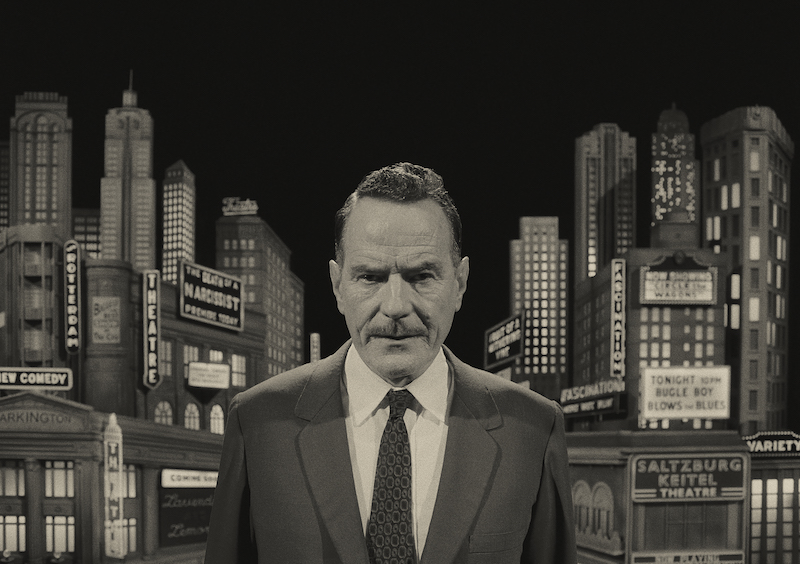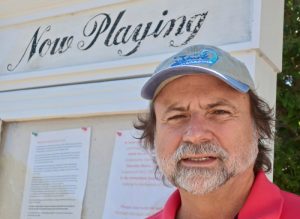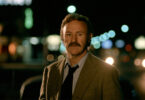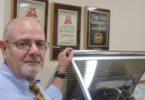Life is so confusing you could go mad, but artists keep trying to make sense of it anyway.
That’s one of the takeaways from Wes Anderson’s “Asteroid City” (PG-13, 104 minutes, in theaters).
The movie is a challenge in itself. It opens as a TV documentary about a play that tells the story that Anderson’s movie depicts when the movie isn’t cutting back to behind-the-scenes stories related to the play as presented by the TV documentary.
Well, something like that.
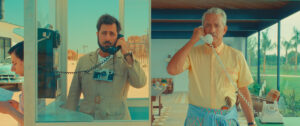
(L to R) Jake Ryan as “Woodrow”, Jason Schwartzman as “Augie Steenbeck” and Tom Hanks as “Stanley Zak” in writer/director Wes Anderson’s ASTEROID CITY, a Focus Features release. Credit: Courtesy of Pop. 87 Productions/Focus Features
The central story (though even this might be up for debate) is what the imaginary play (and most of Anderson’s movie) is about. It’s 1955, and Augie Steenbeck (Jason Schwartzman), accompanied by his genius son, Woodrow (Jake Ryan), and three young daughters, has his station wagon towed to the desert community of Asteroid City, population 87.
Augie is a camera-toting war photographer who has recently become a widower (though he has yet to tell his kids about their mother’s demise three weeks earlier). He’s on his way to the home of his wealthy father-in-law, Stanley Zak (Tom Hanks), but the visit to Asteroid City was planned before the station wagon’s breakdown.
Asteroid City itself is definitely a key – if not the key – character in the film. Along with a diner, a gas station, a 10-unit motel and an unfinished highway ramp, it’s home to a meteor on display as a tourist attraction. It’s also the site of the Junior Stargazers and Space Cadets convention, where young scientific minds, including Woodrow, present their (comically) amazing inventions and awards are handed out (among the awards: the White Dwarf Medal of Achievement). The ground occasionally shakes in Asteroid City, as, in the distance, atomic-bomb testing takes place in the desert.
Augie and Woodrow run into all sorts of characters here – other prodigies and their parents (Scarlett Johansson plays a famous actress, Hope Davis, Liev Schreiber), military folks (Jeffrey Wright plays a general), scientists (Tilda Swinton), a teacher (Maya Hawke), the motel owner (Steve Carell), a car mechanic (Matt Dillon). Bizarre occurrences ensue, leading to a quarantine.
From time to time, the film cuts back to the TV special (with Bryan Cranston as the host), which depicts how some of the actors became involved in the play. These scenes also feature the play’s director (Adrien Brody) and playwright (Edward Norton).
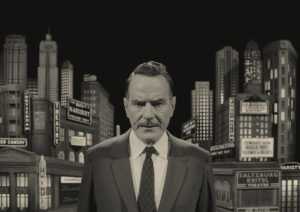
Bryan Cranston stars as “Host” in writer/director Wes Anderson’s ASTEROID CITY, a Focus Features release. Credit: Courtesy of Pop. 87 Productions/Focus Features
These TV special/play scenes are shot in black and white, a striking contrast to the popping postcard colors used for the Asteroid City scenes. As always, director Anderson (“Rushmore,” “The Royal Tenenbaums,” “The Grand Budapest Hotel”), who co-wrote the screenplay with Roman Coppola (son of Francis Ford), emphasizes the artificiality of his material, whether through this contrast of bright colors/black and white or his usual meticulously composed, static shots and his slow tracking shots; the characters’ clipped manner of speech and the intentionally stiff acting; and the ever-present droll humor.
Anderson’s self-conscious, absurdist style often keeps us at an emotional distance, and that’s the case here – even as the film deals with, say, the grief experienced by Augie, Woodrow, Stanley and the three girls over the death of the wife/mother/daughter. But “Asteroid City” is funny, in its odd way. And while the story seems to go nowhere in particular, and, at first glance, might seem to be “about nothing,” it could also be interpreted as being about everything: perceptions of reality, life’s purpose (if any), the possibility of an afterlife, the existence of God or other forms of life, the multiple roles we take on – including the role of the artist.
This might be Wes Anderson’s most personal film. Or maybe it’s his least personal. We’ll probably never know for sure. The filmmaker’s work, like life, is a mystery. *** (out of four)
** Click here for Tim Miller’s previous movie columns for Cape Cod Wave **
Please like Cape Cod Wave on Facebook.
Cape Cod Wave Magazine covers the character & culture of Cape Cod. Please see our Longform stories.
Tim Miller is co-president of the Boston Society of Film Critics. He teaches film and journalism at Cape Cod Community College in West Barnstable. You can contact Tim at [email protected] or follow him onTwitter @TimMillerCritic. Or you can ignore him completely.

